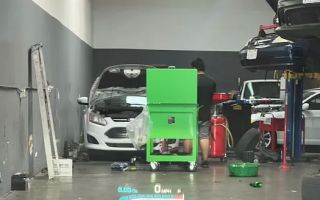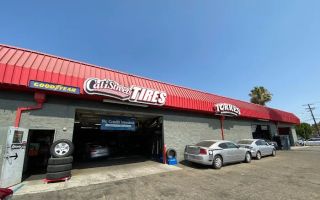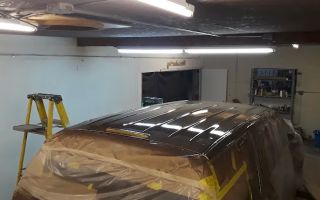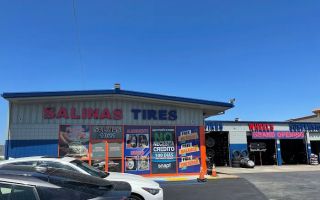Can a Tire Blowout Cause Accidents or Injuries?
I was driving down a long stretch of highway on a beautiful summer day when I heard a loud pop. The noise was unmistakable—my tire had just blown out. My heart raced, and a wave of panic washed over me as I quickly grabbed the wheel and tried to keep control of the car. I had always known that a tire blowout could be dangerous, but in that moment, the reality of how it could cause an accident or injury became all too clear. Tire blowouts are a common cause of accidents, and understanding their potential dangers is crucial for all drivers.
What Happens During a Tire Blowout?
A tire blowout occurs when a tire suddenly loses air pressure, often in a dramatic and violent way. When a tire blows out, the force of the explosion can send the vehicle into a sudden uncontrollable skid or swerve, which can result in an accident. The speed at which the tire loses pressure, combined with the vehicle’s momentum, can cause the car to pull in one direction or become difficult to steer. This is particularly dangerous if it happens at high speeds on highways or interstates, where there is less time to react.
The initial reaction to a tire blowout can vary depending on the driver’s experience and the vehicle’s speed. In my case, the blowout caused the car to swerve toward the shoulder of the road, and I had to fight to keep it straight. Fortunately, I was able to slowly reduce my speed and safely pull over, but not everyone is so lucky. The sudden loss of control can result in a driver overcorrecting, which is a common cause of accidents in tire blowout situations.
Types of Accidents Caused by Tire Blowouts
Tire blowouts can lead to several types of accidents, ranging from minor fender-benders to catastrophic crashes. Here's a breakdown of the most common accident scenarios:
- Loss of Control and Skidding: As mentioned earlier, a tire blowout can cause the vehicle to veer off course. If the driver is unable to regain control, the car may skid across multiple lanes, increasing the likelihood of a multi-car accident. This can happen very quickly, especially on highways with high-speed traffic.
- Rollover Accidents: A sudden blowout can also lead to a rollover accident, particularly in vehicles that have a higher center of gravity, such as SUVs or trucks. If a tire blows at high speed, it can cause the vehicle to tip or roll over, leading to serious injuries or fatalities.
- Rear-End Collisions: If a tire blowout occurs and the car starts to slow down rapidly, other vehicles traveling behind may not have enough time to react. This can result in a rear-end collision, where the following vehicle crashes into the back of the car with the blown tire.
- Collisions with Objects: In some cases, the driver may lose control completely and crash into barriers, guardrails, or trees. The impact from these collisions can be devastating, depending on the severity of the blowout and the speed at which the vehicle is traveling.
Injuries Caused by Tire Blowouts
Unfortunately, tire blowouts don’t just lead to property damage; they can also cause serious injuries. Here are some ways that tire blowouts can result in injury:
- Whiplash and Neck Injuries: The sudden jerking motion caused by a tire blowout can strain the neck muscles, leading to whiplash. Even if the accident isn't severe, this type of injury can cause long-lasting pain and discomfort, requiring medical attention.
- Traumatic Brain Injuries (TBI): If the vehicle rolls over or crashes into another vehicle or object, the passengers are at risk of head injuries. A sudden impact during a tire blowout can result in traumatic brain injuries, which can have life-altering consequences.
- Broken Bones and Fractures: During a crash or collision, passengers are at risk of suffering broken bones, especially if they are not wearing seat belts or if the impact is particularly severe. Broken limbs, ribs, or even spinal fractures can occur.
- Seat Belt Injuries: While seat belts are essential for safety, a violent collision due to a tire blowout can cause the seat belt to exert too much pressure on the body, leading to internal injuries, bruising, or even fractures.
How to Prevent Tire Blowouts
While tire blowouts can sometimes be unavoidable, there are several steps you can take to reduce the risk of experiencing one. As someone who has had a close call, I can tell you that prevention is key. Here’s what you can do to minimize the chances of a tire blowout:
- Regular Tire Maintenance: One of the most important steps in preventing a tire blowout is regular maintenance. This includes checking the air pressure in your tires, ensuring they are properly inflated, and rotating them periodically. Uneven tire wear can increase the likelihood of a blowout, so keeping your tires in good shape is essential.
- Inspect Tires for Damage: Before hitting the road, it’s a good idea to visually inspect your tires for any visible damage, such as bulges, cuts, or worn-out tread. If you notice anything unusual, have the tire inspected by a professional and replaced if necessary.
- Know Your Tire Load Limit: Overloading your vehicle can place excessive stress on your tires, increasing the risk of a blowout. Make sure you know your vehicle’s load limit and avoid exceeding it, especially when traveling long distances.
- Avoid Excessive Speed: Driving at high speeds, particularly on rough or hot roads, can cause tires to overheat and increase the likelihood of a blowout. Stick to speed limits and drive cautiously to protect both yourself and your tires.
- Replace Old Tires: Tires have a lifespan, and they should be replaced every 6 years, regardless of how much tread is left. Older tires are more prone to failure, especially in extreme temperatures.
What to Do After a Tire Blowout
If you experience a tire blowout, it’s important to stay calm and follow these steps to ensure your safety and the safety of others on the road:
- Keep a Firm Grip on the Wheel: If the blowout occurs at high speed, grip the steering wheel firmly to maintain control of the vehicle. Avoid jerking the wheel suddenly, as this can cause the car to swerve.
- Slow Down Gradually: Begin to slowly reduce your speed by easing off the accelerator. Avoid braking suddenly, as this can cause the vehicle to lose stability.
- Move to the Shoulder: If possible, steer the vehicle to the shoulder of the road or a safe area away from traffic. Turn on your hazard lights to alert other drivers of the situation.
- Call for Assistance: If you can’t change the tire yourself or need help getting your car to a repair shop, don’t hesitate to call for roadside assistance. Companies like Rescue & Towing can quickly dispatch a technician to assist you with changing your tire or towing your vehicle to a safer location.
Why Towing Assistance is Crucial After a Tire Blowout
If you're unable to safely change your tire or need help in an emergency, roadside assistance services like Rescue & Towing are invaluable. They provide quick response times, ensuring that you get the help you need, whether it’s for a flat tire, fuel delivery, or a tow to a repair shop. Having access to reliable towing assistance can make a world of difference in keeping you safe after a tire blowout.























